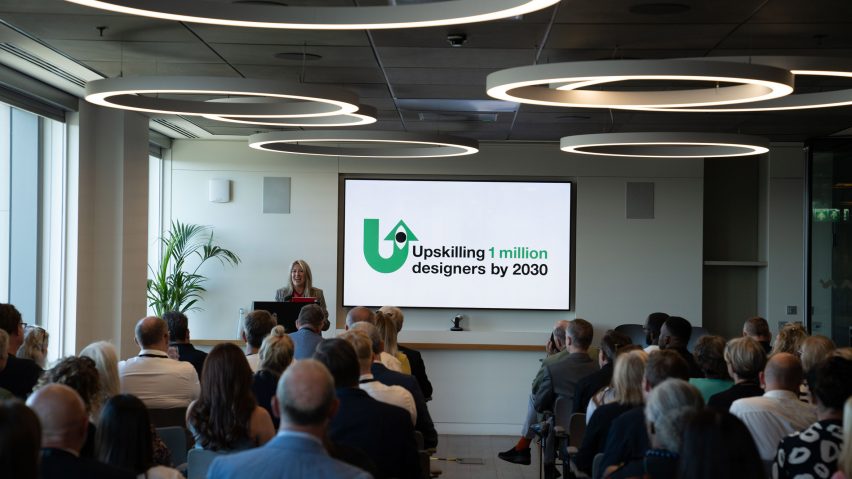
Design Council launches plan to upskill one million designers by 2030
The UK's Design Council has announced a mass upskilling target to prepare one million designers for the green transition, starting with a call to reverse the "critical decline" in design and technology education.
Its plan to upskill one million designers by 2030 was launched last week at an event in London, in conjunction with a report titled A Blueprint for Renewal: Design and Technology Education.
The report, published by the Design Council together with a consortium of 20 leading design and education organisations, has launched a set of policy recommendations for a crucial revisal of the Design and Technology (D&T) GCSE course in the UK.
Design GCSE entries have fallen
The recommendations come at a time of decline in non-English Baccalaureate (EBacc) subjects, which includes D&T as well as other non-academic subjects such as drama, dance, music and sport.
The report states that over the past decade, British D&T GCSE entries have fallen by 68 percent, and the number of D&T teachers has more than halved.
"The fall in D&T has destabilised the whole subject area, masking steep declines in all art and design subjects and cutting off a vital pipeline for creative and engineering talent into industry," the report stated.
The report leads with four main recommendations. The first is to "refine and renew the D&T subject content for 11 to 18-year-olds, aligning it to inclusive innovation and sustainability."
This point plays into the Design Council's broader aim to adequately prepare students to address future global challenges.
The report also recommends putting design at the heart of a "reformed broad, balanced and creative curriculum" and calls to develop and implement a funded strategy for D&T teacher recruitment, training, continuing professional development and retention to support this.
Government should forge "forward-looking future for design"
Furthermore, the report suggests that D&T should be considered in any reform of school accountability, performance and inspection measures that are currently only attributed to EBacc subjects.
"All of these actions must be underpinned by a fundamental culture change within educational policy to recognise the value of both creativity and skills-based learning," the report concludes.
With the general election taking place in the UK on 4th July, the report also tasks the incoming government to "stem the flow of teachers and students leaving the subject and ensure that D&T's future as a core curriculum subject is secure".
That government should "forge an ambitious, forward-looking future for design as the jewel in the crown of a reimagined British education system" by the end of parliament, the report said.
"Design and Technology is one of the few spaces in the school curriculum where science and creativity meet and students get to solve real-world problems in innovative ways," it added.
Design Council to train stakeholders and designers
Over the next twelve months, the Design Council's first step in its upskilling programme is to convene education and training stakeholders, as well as designers themselves, to co-design what the green design skills are and what the upskilling programme needs to look like.
"Industry is crying out for people with creative problem solving skills, critical thinking, adaptability and resilience," the report said. "These are the skills that will enable us to build the green and digital economy of the future."
Speaking at the launch event, the Design Council's CEO Minnie Moll said: "We don't just need to save design education, we really do need to renew the whole of design education for an era of climate and ecological emergency."
The Design Council is aware of the current skills gap in the UK. Its research shows that while 66 percent of designers have worked on environmental projects in the last twelve months, and 73 percent of them think the demand for environmental design is going to grow, only 43 percent think they have the capability to do so.
The target to upskill one million designers will harness the "catalytic moment" of the World Design Congress London, which will be hosted in London in September 2025.
The congress theme is Design for Planet, which aims to accelerate the Design Council's ongoing mission to harness design's power to tackle the climate crisis.
The Design Council has previously launched Design Declares, a campaign to help designers tackle their environmental footprint, and warned about the impact of falling numbers of design students.
The photography is courtesy of the Design Council.